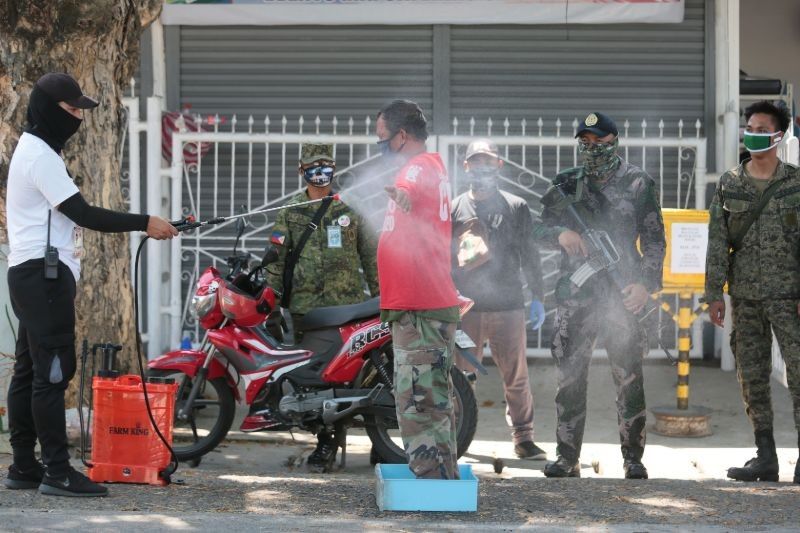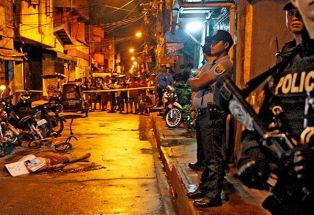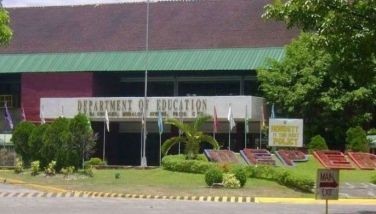Anger at P500/day allowance for medical volunteers about more than money, advocates say

MANILA, Philippines — The Department of Health on Sunday aknowledged the "anger and hurt" caused by its call for medical personnel to help in the government's efforts against COVID-19 for which they would be compensated P500 a day.
It said that it had put supplemental funding into buying personal protective equipment, supplies of which have dwindled in hospitals, with some having to improvise their own.
It also said that with the emergency powers authorizing the executive branch to move funding in the national budget, "we anticipate more flexibility to realign budgets further and receive additional funds for emergency hiring of temporary healthcare workers, among other equally important initiatives."
Groups have slammed the P500/day compensation on social media, saying the amount makes medical frontliners seem unimportant.
"We'd like to ask for forgiveness if the impression given by the P500 daily allowance was that this was the value we regarded our health workers with," DOH Undersecretary Rosette Vergeire said in Filipino in an online press conference Saturday night.
"This could not be further from the truth. That P500 we added to our protocol, that's allowance so our health workers have everyday provisions."
"We based the allowance on what we gave to our volunteers during the past outbreak responses that we did," she added in Filipino.
Volunteers
The DOH said Sunday that 690 volunteers had already "signified interest" in joining the HealthCare Warriors program.
Volunteer work for those willing is set to consist of 14 days of eight-hour shifts and 14 days of mandatory quarantine on-site. Along with daily compensation of P500—the current daily minimum wage rate stipulated by the National Wages and Productivity Commission—they will also be given free food and accommodations.
The DOH also bared that volunteers will be assigned to the Lung Center of the Philippines, the Philippine General Hospital, or the Dr. Jose N. Rodriguez Hospital—all three of which have committed certain buildings to taking in COVID-19 patients exclusively with varying degrees—throughout their 28-day engagement.
“We are enraged to know that DOH, as a government agency, violates our own labor policies as it does not comply to the minimum wage requirement mandated by the law,” Thadeus Ifurung, spokesperson of labor group Defend Jobs Philippines, said in a statement.
“If the health department is really serious in addressing and resolving the COVID-19 pandemic then it must first and foremost take care of the welfare of our medical and non-medical professionals who are risking their lives in the frontline of the battle against coronavirus,” Ifurung added.
'Will the norm not change?'
Health workers at the frontlines day in and day out are among those most exposed to the virus.
In an online exchange with Philstar.com, Coalition for People's Right to Health (CPRH) co-convenor Josh San Pedro pointed to the chief executive's Administrative Order No. 26, which authorized hazard pay for government personnel who reported to work amid the enhanced community quarantine and "strongly encouraged" the same for health workers in the private sector.
According to AO 26, COVID-19 Hazard Pay equates to P500 per day that a government employee physically reports for work during the quarantine period.
READ: Groups call for COVID-19 testing, better support and pay for health workers
Section 1 of the order reads:
Personnel who are already entitled to Hazard Pay, Hazardous Duty Pay, Hazard Allowance or other similar benefits under existing laws [such as] public health workers, science and technology personnel [...] shall continue to be entitled to such benefits or the COVID-19 Hazard Pay, whichever is higher.
"It remains to be seen whether this is the same P500 the DOH is talking about—thus really showing 0 compensation—or will it be on top of the promised P500?" San Pedro said.
"In any case, it is not just undignified as being below the minimum wage of Metro Manila and very far from the entry-level salary, but also reprehensible, given the known unfilled plantilla positions and the capability of DOH to ask for further budget to fund and take of its frontliners."
Acknowledging Vergeire's pronouncement that the amount was based on previous norms, San Pedro asked: "Will the norm not change, especially in dire conditions like these?"
READ: Healthcare 'grossly neglected' in 'middle-income' Philippines, groups say
According to San Pedro, the suggestion of CPRH is to hire the volunteers even beyond the quarantine period.
"This is probably the best time for us to finally give importance to properly staffing our health system, meeting the proper ratios of doctors, nurses, midwives and health workers," San Pedro said.
In an earlier exchange, he also pointed out, “Only 43% of barangays have a functional [barangay] health station [or] center, and the ratios of health workers to the population is overwhelming.”
The WHO's basis for a desirable doctor–population ratio stands at 1:1,000, while the DOH's own standard is 1:4,000. Furthermore, a 2016 study by NGO Viva Salud found that "8 people out of 10 in the [Philippines] report never having had a medical checkup or physical examination in their life."
'Take care of volunteers'
San Pedro also had issue with what he called the 'release of responsibility' waiver, which is one of the requirements for interested volunteers.
Asked for the recommendation of doctors' and healthcare groups on a proper allowance for volunteers, San Pedro said, "Base it on the entry-level salary with hazard pay (based on DBM-DOH circular) on top of the COVID risk allowance as mentioned in the Bayanihan Law."
Republic Act 11469 or the "Bayanihan To Heal as One Act" of 2020, which grants the chief executive special emergency powers to combat the spread of the new pathogen, declares in Section 3 the urgent need to "undertake measures that will prevent the overburdening of the healthcare system" and "ensure [the] funding of the foregoing."
Section 4, which touches on authorized powers, allows the president the following:
(d) Ensure that all public health workers are protected by providing them with a "COVID-19 special-risk allowance" in addition to the hazard pay granted under the Magna Carta of Public Health Workers or Republic Act No. 7305"
(e) Direct the Philippine Health Insurance Corporation (PhilHealth) to shoulder all medical expenses of public and private health workers in case of exposure to COVID-19 or any work-related injury or disease during the duration of the emergency
'Not just the money'
In a Facebook post, radiologist Dr. GK Galvez Tan highlighted the importance of transparency in the Health Department's expenditures, writing, “It's not about the money. Not quite. As some colleagues have said, most doctors would have done the job for free.”
"It's not entirely about how much the DOH is giving. It's about how much they may be holding back. If this is indeed all they can give, I want them to show us, point by point, peso by peso, why this is all they can afford. We know there is money. We do not know where it is going."
"If health care workers are expected to sell their lives cheaply, at least let them have the dignity of knowing that their nation was behind them, fighting for them on every front, at every level," Galvez Tan added.
READ: PhilHealth to shoulder testing costs for COVID-19
Although PhilHealth has already been directed by virtue of the Bayanihan Heal as One Act to shoulder the expenses of healthworkers, the corporation has not yet released guidelines for the measure.
A circular, though, has already been released on the government insurer shouldering testing costs for COVID-19.
"PhilHealth packages, as well as the compensation in the Bayanihan Law is not equivalent to the life of a health worker, which of all agencies, the DOH should know how to value," San Pedro added.
- Latest
- Trending






























